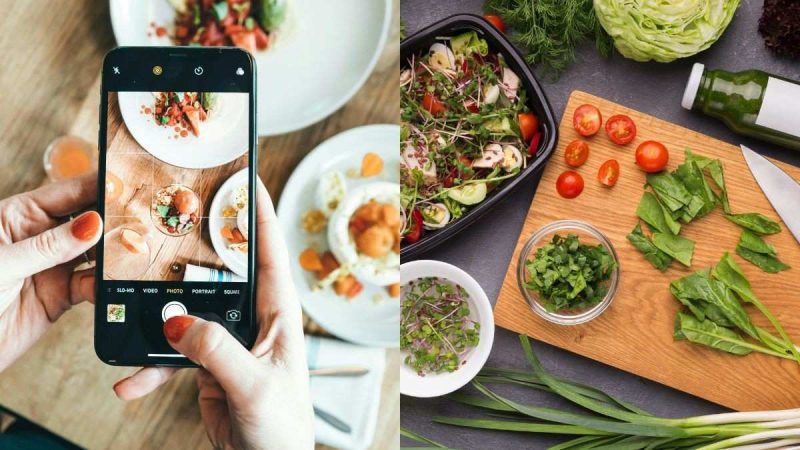These days, nutrition has become less about feeding our bodies and more about performance. People, especially Gen Z and Millennials, have become so obsessed with keeping up with nutrition fads that their actual health takes a back seat. Now, a renowned dietitian has revealed six of the biggest food mistakes these generations are making in their daily lives and what they should do instead.
Social Media’s Influence On Our Eating Habits
Are you someone who plans a brunch at your favourite cafe and orders the most aesthetic-looking meal, even though that’s not what you actually want to eat? If yes, you might be among those eating for Instagram rather than for yourself. If your first instinct is to take pictures for stories before eating, then let us tell you, it could be your biggest mistake.
The increasing influence of social media has changed not just our lives but also how we eat and what we choose to eat. Registered dietitian and author Kylie Sakaida told the New York Post that modern food culture is pressuring people to follow trends, making it harder to make mindful food choices in day-to-day life.
Also Read: Nutritionist Shares 5 Foods All Mothers Should Eat After 50 For Good Health & Immunity
6 Biggest Food Mistakes By Gen Z & Millennials
Here are the six biggest food mistakes by Gen Z and Millennials, according to dietitian Kylie Sakaida:
1. Prioritising aesthetics over health: The influence of Instagram has become so strong. Gen Z and Millennials often care more about how their food looks in photos than how it nourishes them. Uploading pictures of low-carb meals, matcha lattes, and green powders might get you likes, but it may not make you feel good. Kylie Sakaida shared with the New York Post that people should focus on how food makes them feel, not how good it looks on a plate. The trend ‘What I Eat in a Day’ is a classic example of this mistake.
2. Following viral food trends: Taking inspiration from social media is common, but following every viral trend is a mistake. Popular trends like ‘metabolism shots’ or ‘gut health hacks’ might look exciting, but they can be harmful. Instead of this, Kylie Sakaida recommends following the tried-and-tested method: including protein, fibre, and hydration in your meals.
3. Following extreme challenges: Detoxes, body resets and 30-day challenges might promise results, but they often lead to burnout. Instead of relying on extreme diets, Kylie Sakaida advises staying consistent with small, healthy habits. Small and consistent healthy habits do more for long-term health than any short-term challenges.
4. Normalising skipping meals: With busy schedules, many people now skip meals or survive on coffee for breakfast. Some follow intermittent fasting without understanding its impact. This can affect focus and mood. Kylie Sakaida told the New York Post that it’s better to eat regular, balanced meals. It fuels both our mind and body.
5. Feeling guilty about convenience: Many believe only homemade food is healthy. Influencers often promote cooking from scratch, which isn’t always realistic for people with full-time jobs. Yes, homemade food is great, but convenient options are not that bad. Food which is prepped beforehand can be perfectly fine to include in our diet.
6. Treating food as content: Trying viral coffee shops, filming grocery hauls and posting aesthetic meals have become more about performance than nourishment. Instead of using food for content, focus on how it makes you feel.
Also Read: Are Soya Products Available In Markets Actually Healthy? Nutritionist Debunks Popular Opinion
Are you making any of these food mistakes in your daily life?
Cover Image Courtesy: Canva Pro/ Spencer Davis and Prostock-studio
For more such snackable content, interesting discoveries and the latest updates on food, travel and experiences in your city, download the Curly Tales App. Download HERE.
